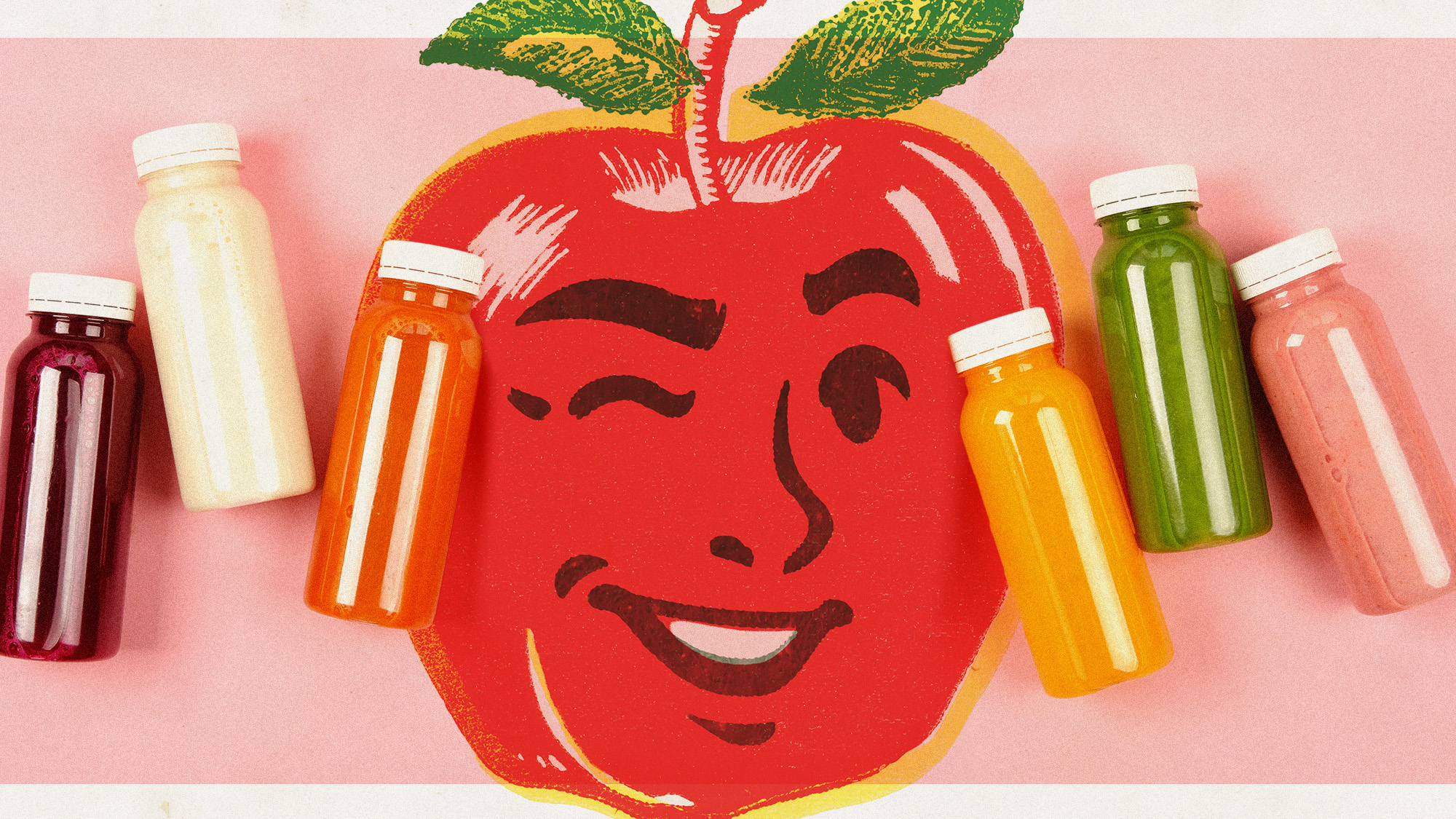'Applejuiceification': the illusion of choice?
Shoppers have been surprised to discover the high percentage of apple juice in many soft drinks and smoothies

A free daily email with the biggest news stories of the day – and the best features from TheWeek.com
You are now subscribed
Your newsletter sign-up was successful
First there was inflation, then shrinkflation and now there is "applejuiceification", after shoppers were surprised to discover the high percentage of apple juice in many soft drinks and smoothies.
Last week, a social media user posted the percentage of apple juice in a range of popular drinks, none of which mention apple juice prominently in their names.
The viral post said this showed there was only an "illusion of choice" and their revelations caused shock and horror, but not everyone is convinced it's anything to get upset about.
The Week
Escape your echo chamber. Get the facts behind the news, plus analysis from multiple perspectives.

Sign up for The Week's Free Newsletters
From our morning news briefing to a weekly Good News Newsletter, get the best of The Week delivered directly to your inbox.
From our morning news briefing to a weekly Good News Newsletter, get the best of The Week delivered directly to your inbox.
'The grip of Big Apple'
The thread of posts examined 13 juices in a supermarket aisle and found that the majority were made with 50% apple juice or more. Examples included the Naked passion fruit, mango and guava smoothie, which has 62% apple juice, and an Innocent pink dragon fruit and lychee drink, made from 70% apple juice.
Turning to Innocent's Berry Set Go, which is labelled as a mixture of raspberry, cherry, apple, goji and guarana, the shopper found that a "surprisingly high percentage" – 82% to be precise – was apple juice, said the Daily Mail.
Twitter was "predictably scandalised", said Paste. "We're all under the grip of Big Apple" quipped one user, and another tagged the software giant Apple, and said: "You have some explaining to do."
'Calm down!'
But not everyone is surprised. "Calm down", said Mashed, because apple juice has "always been a main ingredient in your fruity drinks".
A free daily email with the biggest news stories of the day – and the best features from TheWeek.com
Food companies do "whatever they can to reduce their costs", agreed Paste, and in "the juice world", that means cutting the juice of more expensive fruits with "cheap, sweet and readily available apple juice".
As far back as 2017, the BBC reported on a "switcheroo" in which some exotic fruit juices were, "on closer inspection of the ingredients label", mostly apple or grape juice, explaining that these "inexpensive juices" make a "handy, well-understood vehicle for more expensive flavours".
In a statement, the British Soft Drinks Association confirmed that this is "common practice and has been for several decades", because apples have a "delicate taste and natural sweetness" that can "help balance the profile of smaller fruits", which have a "stronger flavour and can be overpowering in large quantities".
Apples are cheaper and are packed full of sugar, Dr Chris van Tulleken, NHS doctoral and associate professor at UCL, told The Guardian. So they're a "double win" for manufacturers because their juice is sugary but "packaged up with a very palatable acid" and customers "like a sweet and sour taste".
So "we should learn to flip over the package" and "look at the nutrition facts and the ingredients", said TikTok influencer Matt Rosenman, who has also investigated the levels of apple juice in drinks.
Paste's advice is more curt: for those who "feel cheated by this revelation", it's "time to admit to yourself that store-bought juice is and always has been trash", said Paste.
Chas Newkey-Burden has been part of The Week Digital team for more than a decade and a journalist for 25 years, starting out on the irreverent football weekly 90 Minutes, before moving to lifestyle magazines Loaded and Attitude. He was a columnist for The Big Issue and landed a world exclusive with David Beckham that became the weekly magazine’s bestselling issue. He now writes regularly for The Guardian, The Telegraph, The Independent, Metro, FourFourTwo and the i new site. He is also the author of a number of non-fiction books.